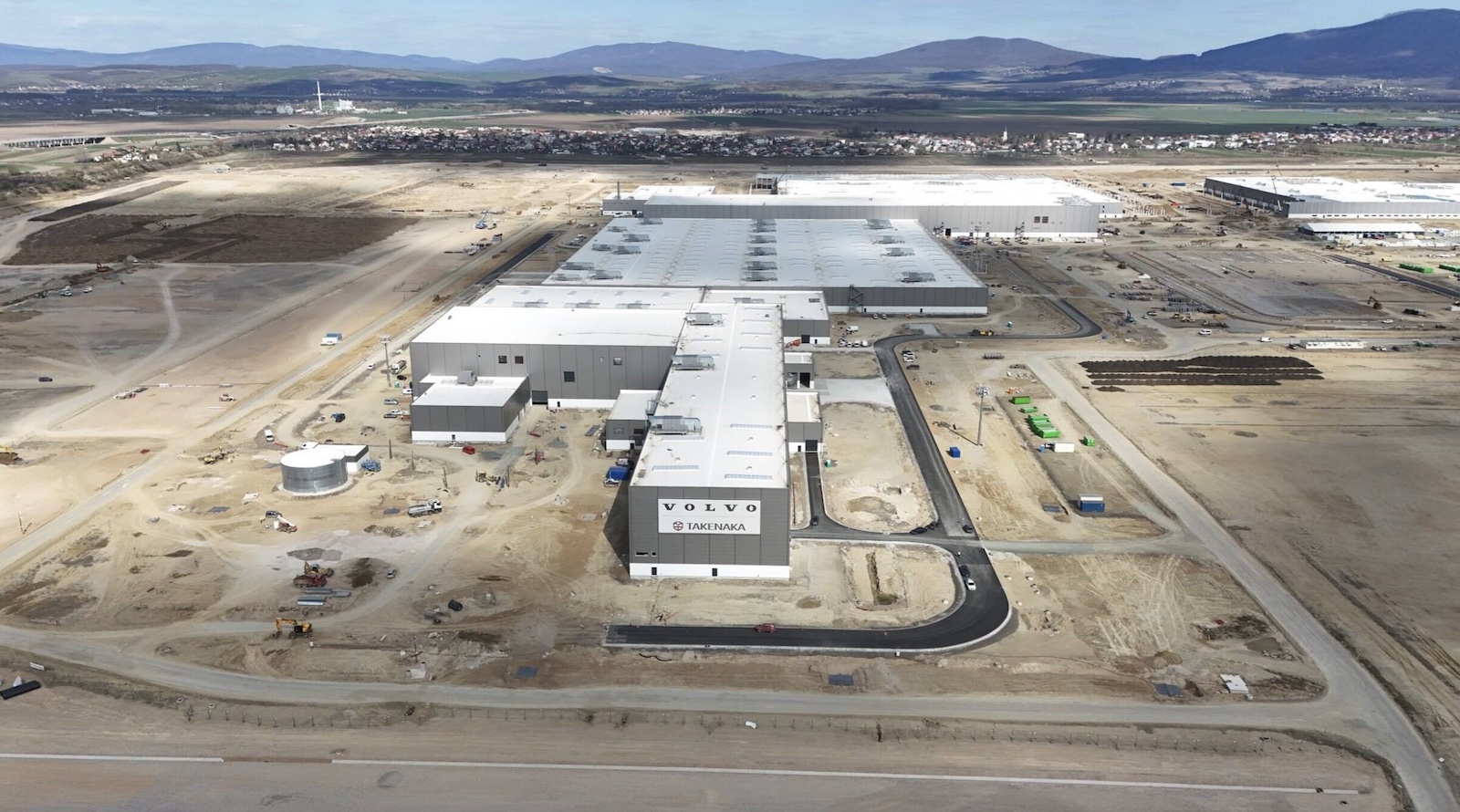Last Updated on: 5th July 2025, 12:25 am
Volvo Cars and Polestar have signed a memorandum of understanding* for the development and production of Polestar’s forthcoming premium compact SUV at Volvo Cars’ new manufacturing plant in Kosice, Slovakia.
The Polestar 7, a premium fully electric compact SUV, is planned to be launched in 2028. Subject to final agreements between the companies, it is planned to be the second car to be built at the Kosice plant and intended to follow a yet-to-be-announced, next-generation Volvo model that will be built there prior to the introduction of Polestar 7.
The Polestar 7 will offer the design and performance characteristics that are synonymous with the brand, while sharing a common technology base with two forthcoming Volvo models, including the Volvo EX60.
It will benefit from group component sharing, mega casting, cell-to-body technology with next-generation battery density and performance, as well as the next generation of Volvo Cars’ in-house developed e-motors. This approach to technology sharing creates economies of scale, driving efficiency and cost benefits.
It also illustrates the benefit of Volvo Cars’ approach to development, as exemplified by its Superset tech stack. Sharing a software base, core system and cloud infrastructure with the Volvo EX90, Volvo ES90, Volvo EX60 and the Polestar 3, the Polestar 7 will benefit from continuous improvements and feature growth designed for the full line-up via over-the-air updates.
“Our collaboration with Polestar on the development and manufacturing of the Polestar 7 underscores how Volvo Cars and Polestar continue to leverage synergies to efficiently deliver outstanding cars built for our distinct customer segments,” says Håkan Samuelsson, President and CEO for Volvo Cars. “This collaboration builds on the success of our joint efforts on the widely acclaimed Polestar 2 and Polestar 3.”
The Kosice plant, currently under construction, will be Volvo Cars’ third manufacturing plant in Europe. The Kosice facility is intended to be climate-neutral and build only electric cars, underpinning Volvo Cars’ ambition to become a fully electric car maker and to achieve net-zero greenhouse gas emissions by 2040.
By picking Slovakia as the location for its third plant, Volvo Cars will soon have a European triangle of manufacturing covering its largest sales region – complementing the Ghent plant (Belgium) in western Europe and the Torslanda plant (Sweden) in northern Europe.
The new Kosice plant represents an investment of around EUR 1.2 billion. It will benefit from a well-established automotive supply chain as it becomes the fifth car plant in Slovakia. It can produce up to 250,000 cars per year and will provide several thousand new jobs in the region.
Note to editors: Volvo Cars and Polestar have signed a non-binding Memorandum of Understanding (MoU). The MoU reflects the mutual intent to explore and pursue a potential collaboration. The execution and implementation of the collaboration described herein remain subject to negotiation and finalisation of definitive agreements between both parties.
Volvo Cars in 2024
For the full year 2024, Volvo Car Group recorded a record-breaking core operating profit of SEK 27 billion. Revenue in 2024 amounted to an all-time high of SEK 400.2 billion, while global sales reached a record 763,389 cars.
About Volvo Car Group
Volvo Cars was founded in 1927. Today, it is one of the most well-known and respected car brands in the world with sales to customers in more than 100 countries. Volvo Cars is listed on the Nasdaq Stockholm exchange, where it is traded under the ticker “VOLCAR B”.
“For life. To give people the freedom to move in a personal, sustainable and safe way.” This purpose is reflected in Volvo Cars’ ambition to become a fully electric car maker and in its commitment to an ongoing reduction of its carbon footprint, with the ambition to achieve net-zero greenhouse gas emissions by 2040.
As of December 2024, Volvo Cars employed approximately 42,600 full-time employees. Volvo Cars’ head office, product development, marketing and administration functions are mainly located in Gothenburg, Sweden. Volvo Cars’ production plants are located in Gothenburg, Ghent (Belgium), South Carolina (US), Chengdu, Daqing and Taizhou (China). The company also has R&D and design centres in Gothenburg and Shanghai (China).
Sign up for CleanTechnica’s Weekly Substack for Zach and Scott’s in-depth analyses and high level summaries, sign up for our daily newsletter, and follow us on Google News!
Whether you have solar power or not, please complete our latest solar power survey.
Have a tip for CleanTechnica? Want to advertise? Want to suggest a guest for our CleanTech Talk podcast? Contact us here.
Sign up for our daily newsletter for 15 new cleantech stories a day. Or sign up for our weekly one on top stories of the week if daily is too frequent.
CleanTechnica uses affiliate links. See our policy here.
CleanTechnica’s Comment Policy

